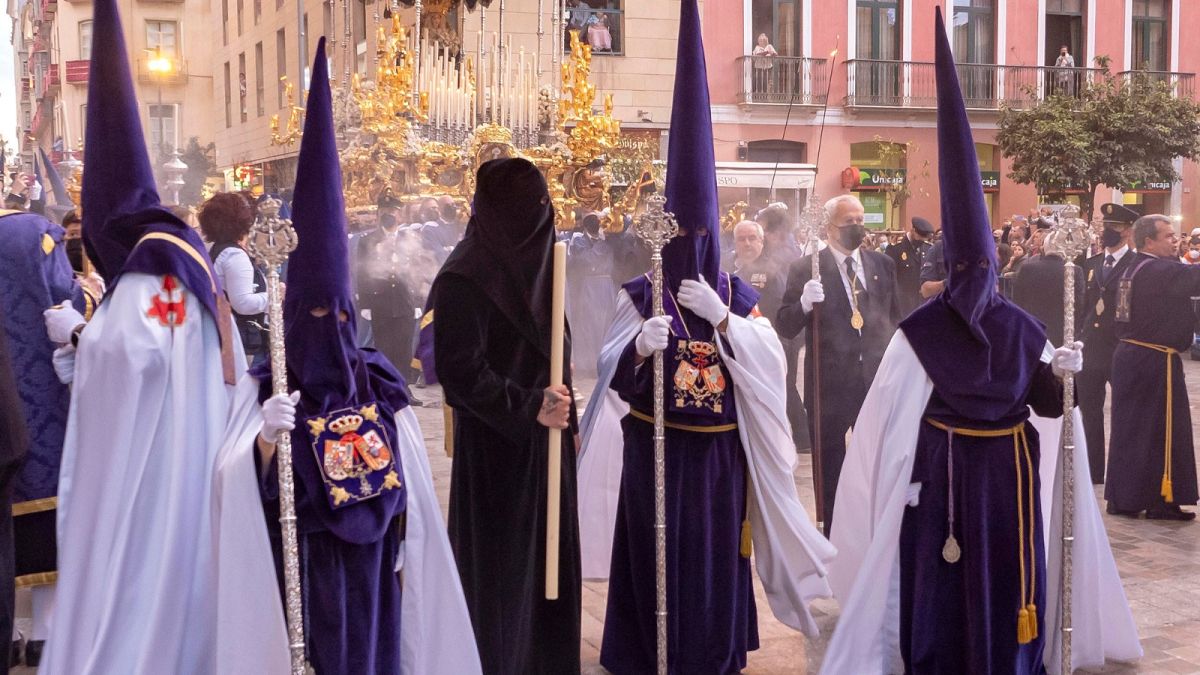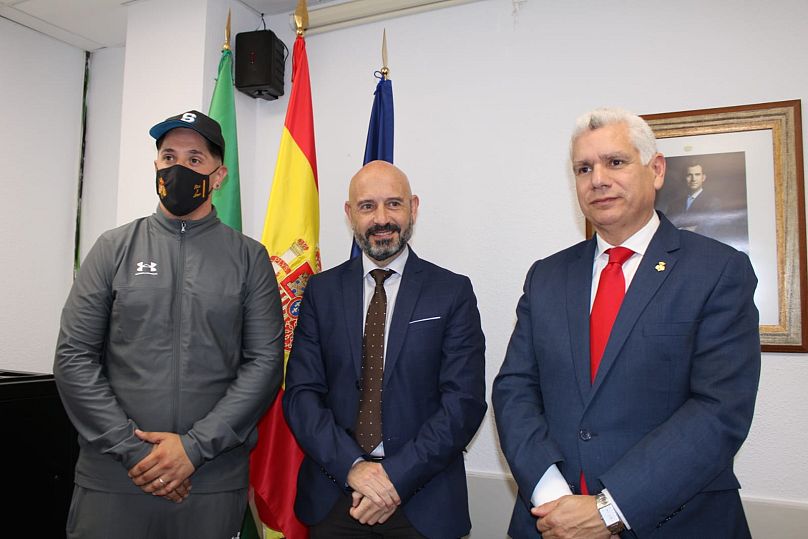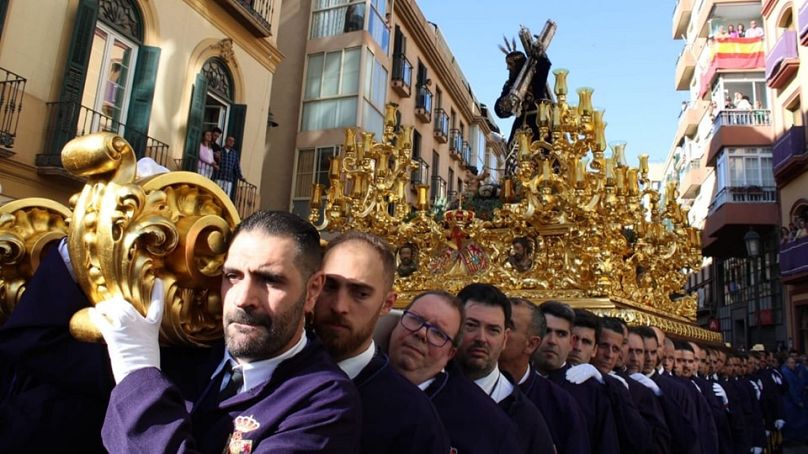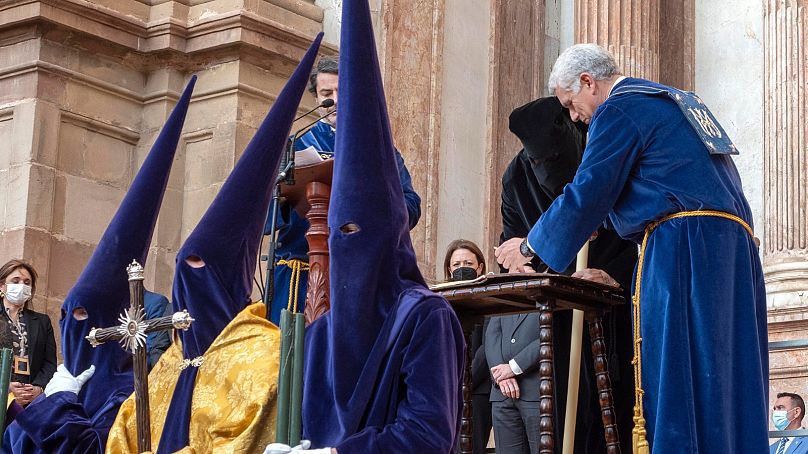"I am grateful for this new opportunity". Antonio Daniel Mira's drug trafficking sentence was cut short by a long-standing tradition of Spanish Holy Week.
“You’re going to be released”.
When Antonio Daniel Mira heard those words from a prison officer just a few weeks ago, he couldn't believe his good fortune.
He still had ten months left to serve, but now his three-year sentence for drug trafficking would be over soon.
“I had to order my thoughts first”, Antonio told journalists in Málaga, and said that he felt anxious at first, but then extremely happy about the situation.
The 31-year-old is the latest beneficiary of a long-standing tradition during Málaga's Holy Week, having his sentence cut short by the local court -- free to go home.
For 272 years now, Jesús El Rico, one of the Church Brotherhoods in the city, has been petitioning the Spanish Ministry of Justice to release one prisoner every Holy Wednesday.
Antonio had never imagined that this year he would be the chosen one.
"This has changed my life. My family didn't believe it. I just want to keep working and be with them," says the father of four who was released ten months early.
"I am grateful for this new opportunity", he adds.
A long standing tradition
The Easter Holy Week -- Semana Santa -- tradition dates back to the reign of Spain's Carlos III in the 1700s, who issued a royal decree after a plague epidemic ravaged the population.
The situation was so dire that the king decided to suspend the processions just at the start of his reign, in 1759.
This did not go down well with the prisoners in Málaga.
"They were very devoted to the brotherhood of Jesús El Rico and asked the prison warden to let them hold a procession and carry Jesus Christ’s throne through the streets of the city", says Javier Salas, spokesperson of Malaga’s Government.
The warden refused as he did not trust the prisoners, so they mutinied, left the prison and carried Christ on their shoulders through the streets in what became the longest procession in the city's history. When they finished, they all returned to their cells.
Days after, a 'miracle' happened. The plague epidemic receded, and Carlos III decided to release a prisoner that year. The tradition has been kept ever since.
The King granted the privilege to the Jesús El Rico Brotherhood and it was ratified by King Juan Carlos I shortly after Spain's return to democracy.
Over 272 years of tradition, this was only interrupted during the Spanish Civil War.
The prisoner selection process
Jesús El Rico is the only Church Brotherhood in Spain which has been bestowed with this privilege.
"We just have to send a letter to the Ministry of Justice asking them to pardon a prisoner. We can't propose anyone, it's the government who decides", says Ramón Varea, the president of the Church Brotherhood Jesús El Rico.
The process is started by the prison institution and the Provincial Court of Málaga by choosing an inmate with "the right profile”.
"They usually pick a prisoner who has good behaviour, convicted for a non-serious crime and whose case doesn’t have significant social repercussion. The aim is to promote the reintegration of the convicted person in the society", says the Spanish government representative in Málaga.
Three possible candidates are selected and their names and files are sent to the Spanish Ministry of Justice. The cabinet then decides who's going to be the lucky one and his or her name is made public at the last Council of Ministers before the Easter break.
However, he says that although they do not have data on the type of sentences that have been pardoned, he is sure that prisoners who committed crimes such as murder or rape have been released at some point in history, given that this tradition has been in place for more than two centuries.
"In order to select the right prisoner, there is hard work done by a psychosocial team from the prison institution. They have to choose a profile that shows it can reintegrate into society, that has a family and still have links outside prison", says the president of the Church Brotherhood.
"Practically all of the inmates who have been released from prison by Jesús El Rico never carry out any other crime. We have to understand that we are humans and we can make mistakes", he adds.
In many cases, freed prisoners have children and many decide not to tell them about their time in jail when they are kids.
However, Antonio decided to open up to his four children. The youngest wanted to see his dad participate in the procession with the Church Brotherhood that has managed to free him.
"I want to take advantage of this opportunity. I am immensely happy", he says.



